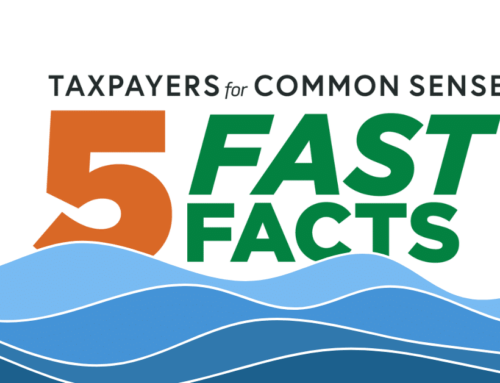On Tuesday, September 12th, the Obama Administration released the text of the “American Jobs Act” which includes $447 billion in tax breaks and new federal spending in hopes to enhance the nation’s economic recovery. The proposal includes $10 billion to create a National Infrastructure Bank called the American Infrastructure Financing Authority (AIFA), a government-owned authority. This rehashed proposal is designed to look like a relatively cheap way to leverage private funds for infrastructure, but would likely cost taxpayers dearly in reality.
According to the American Jobs Act (Subtitle F, Part I, II, & III):
- AIFA would provide loans and loan guarantees to qualified transportation, water, or energy infrastructure projects.
- Infrastructure projects would be prioritized for financing based on their national or regional significance, ability to create jobs, environmental mitigation, and ability to attract maximum private financing.
- To be eligible for financing, projects would be required to show a dedicated revenue source such as user fees, tolls, tax revenue, or other mechanisms that would be used to repay the credit product offered from the bank.
- No more than 50 percent of the project’s financing would come from AIFA and financing faces a 35-year maximum repayment period.
- Projects face a minimum cost of $100 million unless located in a rural area where $25 million would be the established minimum.
- AIFA’s governance would consist of a 7-member board of directors, a chief executive officer — both appointed by the President and confirmed by the Senate — senior management, and an inspector general.
The President’s AIFA proposal is not new to Congress. Various infrastructure bank proposals have been introduced over the last four years and the President’s AIFA is almost identical to S. 652, The Kerry-Hutchinson BUILD Act of 2011. The Kerry-Hutchinson proposal also created an infrastructure bank titled the American Infrastructure Financing Authority, and TCS had concerns about its structure. The President’s proposed AIFA would actually place even more risk at the feet of taxpayers.
Specifically, under the Kerry-Hutchinson legislation, AIFA would be established with a one-time $10 billion capitalization of the bank — exactly like the President’s AIFA — but only receive supplemental administrative subsidies until 2014. After that time, the Kerry-Hutchinson AIFA is directed to be self-sufficient from loan and loan guarantees’ interest, risk premiums, and other fees. The president’s proposal includes no such provision, instead stating that the AIFA should only “minimize administrative and Federal credit subsidy costs to the Government…while supporting achievement of the programs of objectives.” TCS has mounting concern over provision since the AIFA would likely rely on continued Congressional appropriations to support the credit subsidy costs. With existing transportation funds already strapped and growing uncertainty if lawmakers can actually shore up the nation’s debt problem, this bank would likely contribute to larger federal deficits or tap into the soon-to-be bankrupt Federal Highway Trust Fund. Furthermore, these congressionally-driven appropriations would likely subject the bank’s investments to political calculations. Examples of this congressional meddling can be found in the last transportation reauthorization bill, SAFETEA-LU; the “Projects of Regional and National Significance” program was completely earmarked by members of Congress, which severely limited the implementation of cost-effective, prioritized regional or national projects.
Another point of concern surrounds AIFA’s backing of the federal government. While the President’s proposal doesn’t mention whether AIFA enjoys the full faith and credit of the U.S. Treasury, the Kerry-Hutchinson legislation explicitly states AIFA’s credit products would not enjoy full faith and credit backing. Inclusion of the clause would hypothetically make taxpayers the creditor of last resort, meaning federal coffers will not have to cover losses if a project financed by the bank fails. Regardless if either legislation explicitly states this, U.S. taxpayers have paid dearly for the faulty financial products offered by non-full faith and credit institutions such as mortgage lending giants Fannie Mae and Freddie Mac. Any entity created by and operating beneath the federal government carries the implied backing of the Treasury, therefore putting taxpayers on the line in the case of failure or default. After lessons learned in the federally-backed mortgage industry, this is clearly not acceptable, especially when the legislation fails to even mention the financial product’s federal backing status.
In times of trillion dollar deficits, $14 trillion in national debt, and crumbling infrastructure, taxpayers must be given the highest safeguards from the risks presented by the President’s AIFA proposal. There are instances where additional public-private financing can fill an important gap for maintaining, expanding, and improving the nation’s transportation infrastructure, but it is obvious that this proposal is not a worthy contender due to its unclear federal backing and need for ongoing Congressional appropriations. Taxpayers for Common Sense will continue to analyze infrastructure bank proposals and ensure that Taxpayers are spared the unneeded risk associated with them.







Get Social